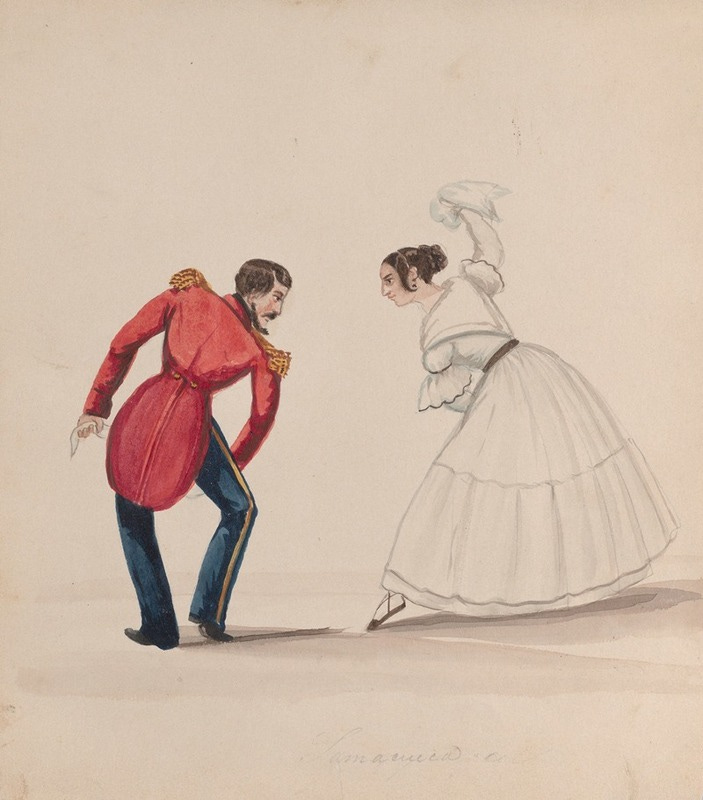Gender is not an appendix
On Christianity Today's cover story "Complementarian at Home, Egalitarian at Church?"
AN INVITATION: I’d love to see you at a small informal gathering with me & admissions next Wednesday (April 17th) at 1pm CST to discuss Northern Seminary’s Doctor of Ministry in Theology program! You’ll have the opportunity to ask your questions about the program. If you are interested in attending, please complete this short form so that you can receive the Zoom link.
There will be prizes and special offers given away during the Zoom! We can’t wait to see you!
Gentle reader,
Christianity Today’s March 18th cover story, by Gordon P. Hugenberger, is titled “Complementarian at Home, Egalitarian at Church? Paul Would Approve.”
I’m worried about that contradiction and about what it says about evangelical biblical interpretation.
Hugenberger is trying to bring complementarians and egalitarians together, asking Christians to focus on what unites us. In that interest, he celebrates a number of claims he says are shared by egalitarians and complementarians: claims about the giftedness of women and the fullness of the image of God as present in women.
In the interest of unity, the piece downplays complementarian strictures on women, saying that “most complementarians” are fine with things true of what is sometimes called “soft complementarianism,” things like affirming female physics professors and women praying in church. Most complementarians may indeed believe the things Hugenberger names here, but I don’t have numerical evidence for that, and I’ve certainly encountered specific complementarian arguments against such affirmations. He seems, here, to say to egalitarians, “see? complementarianism isn’t that bad.”
Sciurus sub-auratus, Orange-bellied Squirrel. Male & female. Natural size. (1845-1848), John Woodhouse Audubon
Then the piece turns to ask complementarians to consider that egalitarians might, also, not be so bad, as Hugenberger exegetes several New Testament passages often read to forbid women from church leadership. He reads these as softer or less universal than complementarian readings often suppose.
The part of the article about “complementarian at home” takes on one of the most difficult passages in scripture, in 1 Timothy 2, where we read of women not assuming authority over men, followed by reference to Genesis (“Adam was formed first, then Eve,” vs. 14). Hugenberger argues that the turn to the creation narrative suggests the passage is about home more than it is about church. At this point in the argument, the call to complementarians seems to be this: women leading in church isn’t so bad; they can still submit to their husbands.
Hugenberger then calls for a “generosity of spirit” that would judge gender roles to be a secondary issue. He asserts that complementarians and egalitarians should be able to attend churches with convictions opposite their own, as egalitarians would not claim that female leadership is always required of every church and complementarians—this part is less clear—can recognize that some Christians disagree with them here, though they “would not encourage or vote for any women to serve” in leadership, it:
“would never be a sin for the complementarians in a church that has female elders or pastors to learn or heed directions from those elders or pastors, as long as whatever those female leaders preach or direct is faithful to the Word of God. For example, if a female elder directs the congregation to open a worship service by singing “Amazing Grace,” the complementarians in the congregation should not hesitate to sing that hymn because it would not be a sin to comply with such a directive.”
This seems … tortured.
It’s true enough that egalitarianism is fine with male leadership, but it doesn’t follow that the particular male leaders of a complementarian congregation won’t have deep convictions that egalitarians find contrary to the gospel. And I doubt “most” complementarians would be at all happy worshiping with a female pastor.
I think Hugenberger is trying to make a nice argument about Christian unity. I always want to appreciate calls for generosity of spirit.
But the problem is this: egalitarian and complementarian convictions are not discrete beliefs which can be separated from the gospel as a whole.
My understanding of God’s callings for women is deeply intertwined with my understanding of creation, salvation, the person of Jesus, the nature of the church, the work of the Holy Spirit, eschatology, and so on. It’s not an appendix one could pull out, leaving the rest of me largely unchanged.
And so it is with complementarian conviction. Complementarian theologies read the Christian story as a whole. Some complementarian theology imports patriarchy into the very fabric of creation. Some would eternally subordinate the Son to the Father or preach an authoritarian view of God’s work in the world tied to an authoritarian understanding of patriarchal prerogatives. Again, we can’t pull out this one bit and expect it not to be connected to the whole.
If the question of complementarian vs. egalitarian interpretation of scripture is tied to other theological issues, gospel issues, it is also tied to the lived experiences of men and women in churches and homes. One can’t simply live and let live when theological convictions hurt real people, beloved children of the Father. Yes there are “good” complementarians, but we also know that complementarian theology is correlated with increased instances of abuse, which is small wonder when a system works to buttress patriarchal power in a world wherein fathers, just as much as mothers, are twisted by sin.
I have heard the stories of too many women and men who have been hurt in complementarian systems. It is that bad.
A man and woman dancing the Zamacueca (ca. 1848), Francisco Fierro (Peruvian)
We can’t split gender roles from central doctrinal matters. We can’t split gender roles from discipleship and practice. And we can’t solve debates about gender with exegesis of a few choice passages of scripture. Prooftexting is atomizing. To live well together as embodied, gendered, beings, we have to read scripture together with its ancient context and in light of our contemporary contexts. We have to think about how scripture shapes our actual lives. (Here, I offer a reading of scripture which locates patriarchy in the whole story of creation, fall, and redemption.)
Our readings of Adam and Eve aren’t “just” about marriage. They are and always have been about what it means to be male and female together in the world. If what it means to be male and female together is grounded in gospel truth, it will have to be lived consistently, at church, at home, and in society.
We can’t split church from marriage. What would it mean to affirm women pastors and to subordinate those women to their husbands at home? Conviction about male leadership in one sphere is bound to translate to another sphere. It’s also bound to translate to our basic understanding of what it means to be male and female. Unless God is arbitrary and irrational, we can’t claim that God made men to lead and women to submit without it following that there is something intrinsic to being male and female which justifies those roles.
If we believe that women are ontologically subordinate, even if we wouldn’t articulate that out loud, how can we also truly believe that women bear the image of God and are intended for glory?
Grace & peace,
BFJ
I’m grateful if you choose to subscribe, forward, or share.
Want to support my work but can’t become a supporting subscriber? Buy me a coffee.
After I wrote this piece, I discovered that my friend and colleague
has already written two responses to Hugenberger’s piece. Find the first here. I recommend taking a look at the very helpful points Nijay makes, some of which overlap with mine.Consider taking a class with me at Northern Seminary, where we talk about theology, doctrine, the bible, and many other wonderful topics.
And check out streaming video courses on theology, church history, biblical studies, and more at Seminary Now. See my course and others from leading authors and professors.
Shop my Redbubble store for products affirming women in ministry and theology.
Complementarian theology & gnosticism
Gentle reader, When asked if he would use a Bible commentary written by a woman, John Piper gave an odd and telling answer. The problem with women teaching, says Piper, is not that women are incompetent (thanks JP!). The problem is “the dynamic between how men flourish and women flourish as God designed them to flourish.”












This is really excellent. (As usual.) I want to say lots of things but that would not be good stewardship of my time right now...but thank you, Dr Jones, for saying all these things.
I appreciate this newsletter. I’m a person who has found myself in the “middle” on a lot of things theologically and I’m content with that. This is not one that I have found peace on. I feel like I can’t confront this issue objectively. Each time I try, my preconditioning gets it the way. There is too much emotion tied into this issue, too much guilt. I didn’t grow up in a complementarian church. I grew up in a church where women did not help with the offering portion of the service. So to get to the place where women could serve in the church outside of women’s and children ministry took me several years.
So now when I would really like to explore this more, I find emotions like anxiety, fear, and guilt. What pops to my head is that I don’t want to be “on the wrong side” of this issue so I better just toe the line at complementarianism. But what this line of thinking does is prevent me from deciding for myself where I land on this issue.
It’s frustrating because that church was not a good one. I don’t want years of conditioning in my head from a church who did not value women. 🤷🏽♀️